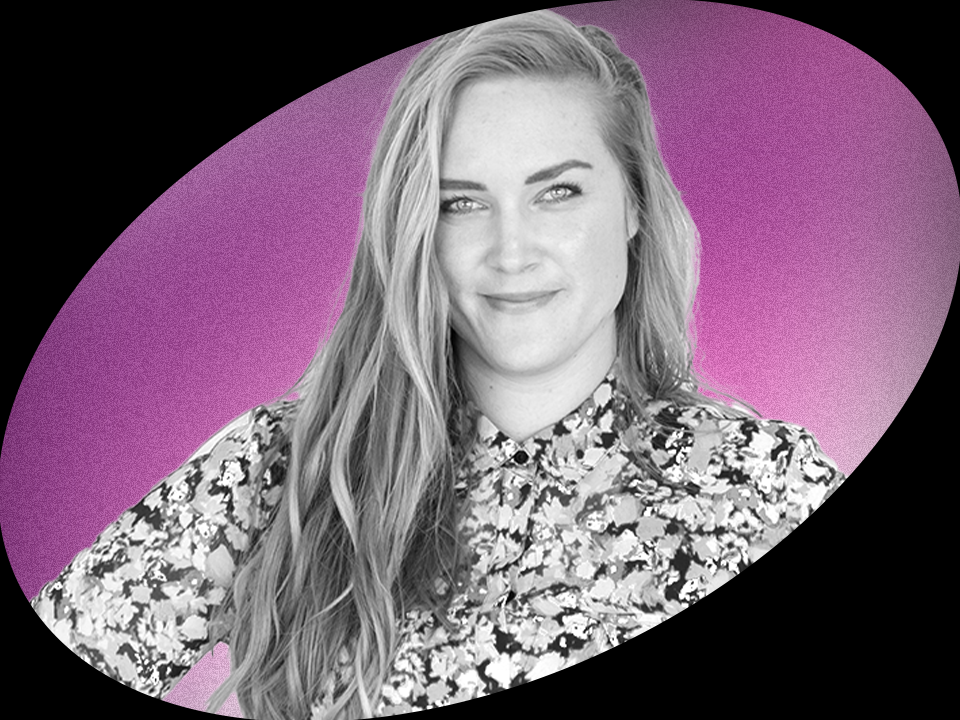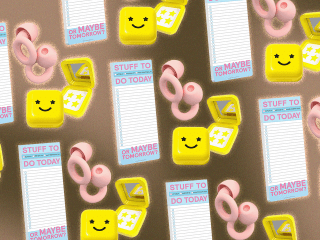How a Body Image Expert Deals With Low Self-Esteem Days
"Your body is an instrument, not an ornament."
No matter who you are or what you look like, you’ve probably struggled at some point with having a healthy body image. Maybe you still do. And that doesn’t mean that there’s anything wrong with you—it just means that you’re a person in a body who lives in a society with very narrow standards of beauty. To dig into this universal struggle, we checked in with Lexie Kite, PhD, a body image and media expert who has been studying body confidence for 15 years. (And, yes, even she still deals with negative self-talk some days.)
Dr. Kite and her twin sister (Lindsay Kite, PhD) co-created the nonprofit Beauty Redefined, which helps people analyze how their self-image has been impacted by the media, cultural standards of beauty, and even the opinions of family and friends. A big focus of their work is the concept of body image resilience, which means confronting how the media objectifies people (especially girls and women) and facing the shame you might feel about your body as a result of internalizing all those opinions. Ultimately, the goal is to focus on what your body can do, rather than how it looks (even if you love your bod).
Here, we talked to Dr. Kite about building confidence, navigating negative body thoughts, and the phrase that helped her change her relationship with her body.
[Sign up here to never miss these candid conversations delivered straight to your inbox.]
WM: You wrote the book More Than a Body with your sister, and in it you discuss the idea of body image resilience. What’s your philosophy on body image and confidence?
LK: Lindsay and I—through our PhD research and so much activism in this body image space—believe that none of us can fix our body image issues without rooting out objectification, without understanding that positive body image isn't believing your body looks good—it’s knowing your body is good regardless of how it looks. We believe a more effective approach to healing our body image issues needs to reflect the understanding that focusing on the appearance of our bodies is the problem, not the solution.
We can't just reinforce that we are beautiful just the way we are, flaws and all. We need to go deeper than that to help people understand that, yes, you are beautiful, but you are so much more than beautiful. You are so much more than a body.
WM: Part of your approach to a healthy body image is focusing on showing up in our lives even when we don’t feel confident. How can we all practice that?
LK: Understanding that many of us live our days thinking about how we look rather than living inside our own bodies is the first step to coming back home to your body and reclaiming it as your own. Research shows this self-objectification keeps us from actually living our lives.
When we can reclaim our bodies as our own, we have the confidence to realize that the barriers holding us back are often internal. … We challenge people to consider the ways they've opted out of their lives because of objectifying ideals. We've all been told, “Once you fix your skin, then you'll have the confidence to get out there. Once you lose some weight, then you can start dating.” But the truth is that we can show up as we are right now in this moment. Body image resilience is this opportunity to feel that and to call out and name that shame as it comes up.
It is the totally achievable, absolutely revolutionary process that tells you that the second that shame rises up inside of you, instead of reacting the way you always used to by punishing yourself through disordered eating, over-exercising, or sitting out of events and opportunities, you sit with that shame for a second and recognize it. You call it out and say, “I am more than a body. I am more than this feeling of shame. I have internalized that my body is not the problem. The conditions that have created this shame are the problem.”
Then you make a new choice. Instead of the old ways you cope, you make a new choice to get out there anyway and prove to yourself and the world that you deserve to show up and live as you are. As you walk to the front of the room, or raise your hand in class, or go out on that date, the endorphins tell you, “I'm OK.”
The objectification we've all learned to live with tells us we're parts instead of people. It's holding us back, and it is holding the world back from being able to know us. It sounds so cliche, but the world needs people of all genders that are willing to stand up and show up as they are. As you do that, you give other people permission and confidence to do the same.
WM: What helps you work through the times when you still feel insecure despite trying not to focus on your physical attributes and knowing how many companies benefit from us feeling bad about ourselves?
LK: While we're body image experts, that doesn't mean we don't face regular moments of body shame and self-objectification. This work is also a continual process for me, but my life is absolutely changed by it.
This is a game changer and a paradigm shift for so many people, including myself: Your body is an instrument, not an ornament. Your body is yours. It's the only one you've ever had; it's the only one you ever will have. It's not an instrument because it works perfectly a hundred percent of the time. We are all facing mental health challenges, physical health challenges, illness, injury, the works. But our bodies are instrumental because they belong to us. This is our vehicle.
So when I come up against these moments of shame when I've gained weight or look in the mirror or see myself in a photo and don't like what I see, I remind myself that my body is an instrument, not an ornament.
That shame exists in your mind, but it doesn't have to be your reality. The second that shame arises, the second I feel I’m watching myself instead of living inside my own body, I get back inside my body by doing some deep breathing. I think about my five senses. What can I smell? What can I see? What can I taste? How do I feel right now? And I remind myself that I am capable of so much more.
We also recommend people do this: Look back at the times when you were the thinnest or the most conventionally beautiful. Is that when you were the most happy? Is that when you were treating yourself the best? Or were you prioritizing an outsider's perspective at the expense of your own happiness, health, and well-being?
For me, the times when I was my thinnest, when I was getting the most compliments about my beauty, I was not treating myself well. I wasn't eating enough. I was working out too hard. I was thinking a lot about my body, even though I should have felt amazing based on what other people were telling me.
When people can get critical about their relationships with their bodies and when they are actually treating themselves the best and feeling the best internally, it can help them. … If you prioritize your body being an ornament for everybody else's viewing pleasure, you'll never actually achieve peace, happiness, or a healthy body image.
WM: That's such a good point because when you tend to look at old pictures, you might think, Ugh, I looked so good/so much better. But did you feel that way at the time?
LK: Totally. How were you treating yourself? We forget even the most beautiful people in the world struggle deeply with body image issues. That is the truth. The most beautiful people in the world are still getting cheated on. They still have major mental health and physical health issues they’re dealing with. … That's because we have to root out the objectification and the accompanying self-objectification. Otherwise, none of us will ever be happy. We'll constantly be chasing this mirage.
WM: What advice do you wish you could give to your younger self?
LK: Reconnect with that little you who was introduced to this objectifying world. Most of us can remember it. There was a point before you were self-conscious of your body when you were triggered for the first time. It happens when you hear your mom say something about her own body, or you see the kids that are treated well at school and those that are bullied based on how they look, or you watch a show that only features very thin, ideally beautiful characters. At one point or another, we’re all pushed into this world of objectification. Reconnect with that little you that was introduced to this world by writing them a note, recording a voice note, or whatever it is.
I do this by thinking back to that little Lexi who felt so ashamed of her thighs in second grade because I looked down and realized my thighs were bigger than all my friends in the circle for reading time. I would go back and tell her she is absolutely perfect as she is, that body diversity is real and good.
Yeah, my thighs were bigger than the other kids I was sitting by. Those thighs would go on to be really powerful as a competitive swimmer for years. Those thighs would walk me through the most amazing years of my life. Those little legs, even though I was ashamed of them, have carried me through so much happiness and love and success and joy, and it had nothing to do with how those little thighs appeared. My thighs will always be bigger than these beauty ideals tell me they should be. And yet, I have been able to live such a happy life with these legs.
This interview has been edited and condensed for length and clarity.
Wondermind does not provide medical advice, diagnosis, or treatment. Any information published on this website or by this brand is not intended as a replacement for medical advice. Always consult a qualified health or mental health professional with any questions or concerns about your mental health.




